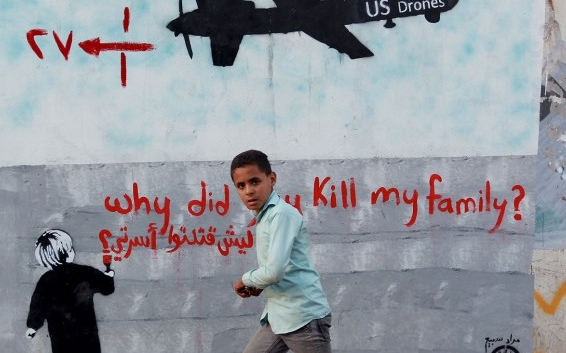Last week, the U.S. State Department notified Congress of an impending $1.15 billion dollar arms sale to Saudi Arabia. This deal is the latest in a string of major arms sales agreements, totaling over $20 billion, since the Gulf country began fighting in Yemen against the Houthi rebels in March 2015. However, steady arms sales to Saudi Arabia continue to lead to civilian causalities in Yemen, sparking concern on Capitol Hill.
“Saudi Arabia is an unreliable ally with a poor human rights record,” Senator Rand Paul (R-KY) told Foreign Policy magazine. “We should not rush to sell them advanced arms and promote an arms race in the Middle East.” Rand is one of many bipartisan voices in Congress, including Senator Chris Murphy (D-CT) and Representative Ted Lieu (D-CA), seeking to block further arms sales to the Kingdom to prevent further civilian deaths in Yemen..
The United States plays a critical support in enabling the Saudi-led campaign, which has claimed the lives over 3,700 civilians since it began a year and a half ago. The currently proposed arms sale includes up to 153 Abrams tanks, 20 Hercules armored vehicles, and hundreds of machine guns. 20 of the Abrams tanks are intended to replace tanks destroyed in combat. Even though the formal announcement of the sale does not specify where the tanks were fighting, the Saudi military is believed to have lost some of its 400-plus Abrams tanks in Yemen over the past few months.
The tank deal is just the latest example of how U.S. arm sales directly fuel the war in Yemen. U.S.-sold cluster bombs, under international, have been at the center of some of the most egregious war crimes alleged in Yemen so far. Unlike normal weapons, cluster bombs scatter hundreds of submunitions to large areas. Many cluster bombs fail to explode on impact, leaving mine-explosives that kill unsuspecting civilians. Despite ample evidence of Saudis using these weapons indiscriminately in civilian areas, the US House of Representatives voted against a June proposal to ban the sale of the munitions to Saudi Arabia, so as not to “stigmatize” their use.
By prioritizing the prosperity of weapons deals over the civilians who are killed by them, the United States undermines its own goal to achieve stability in the region. On Saturday, Saudi warplanes targeted a school, killing 10 civilians and wounding 28 others. All of the victims were between 8 and 15 years old. Two days later, they struck a Doctors Without Borders hospital, killing at least 20 people.
At Monday’s State Department press briefing, department spokesperson Elizabeth Trudeau addressed the Doctor’s without Border’s hospital bombing: “We remain gravely concerned about civilian casualties anywhere in the world where they occur, and Yemen is no exception.” Until the United States puts end to the uninhibited flow of weapons, words of concern are meaningless.
Leah Schulz is an advocacy fellow at ADHRB





